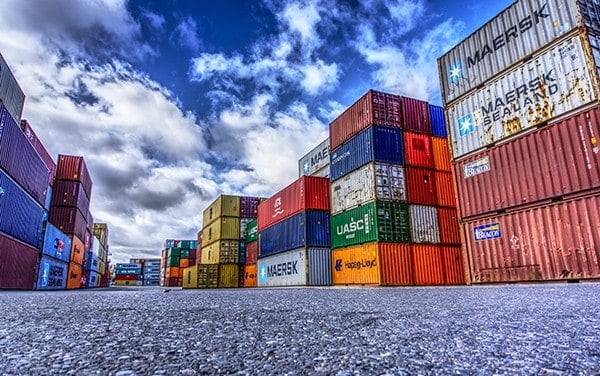
Exporters, Is Your Cash Trapped Overseas?
Posted on 23rd July 2018 by Phil Ainley
Managing cash flow is a critical issue for most SMEs, but it can seem that much more acute when it comes to exporting.
Figures suggest that late payments are hindering SMEs in the UK when they are exporting to other regions, with nearly 40% believing that late payments are a barrier to growth in overseas trade.
Different countries have different legal procedures, and different cultures surrounding trade, which can make chasing debt frustrating and time-consuming.
“Companies can find their cash is trapped behind borders,” observes Paul Daine, Managing Director of Premium Collections. “So, while overseas trade opens new doors, it comes with certain risks. Any business wanting to export, needs to consider these risks, and how to manage them.”

Why Planning Is Critical
The best way to mitigate risk is by having as much foreknowledge as possible before trading overseas. This is about gathering facts, so that the business wishing to export knows its market and understands the culture in which it operates.
It is also important to keep up to date records, so that a business can make informed decisions about future activity based on what it knows about the current state of its finances.
“If your management accounts are out of date, you’re not basing your decisions on an accurate picture,” he says, “and having your records current is enormously useful taking steps to stabilise your cash flow.”
Paul also points out that cash reserves are crucial when beginning to export.

Additional Costs and Risks
“Exporting can involve several changes to your business, including additional costs,” explains Paul. “These involve anything from insurance to transportation, or having to set up a branch office overseas, to meet trading regulations there.”
This is why planning for cash flow when exporting is crucial: businesses must manage risk effectively if they are to take advantage of the opportunities that exporting offers.
Trapped cash can be an issue for exporters, where they are unable to access, or repatriate the money they have generated overseas.
This can be the case for several reasons: there might be foreign exchange controls, or onshore capital requirements. There can be issues to do with regulations within the overseas country concerned, or taxation questions.
However, as Paul stresses, the same problems with late payment and debtors that occur domestically, can also happen abroad.
“International customers may use distance to delay or defer payment,” he warns. “They may also rely on your lack of local knowledge to deter you from recovering your cash.”
Paul emphasises the importance of seeking the right professional support and guidance in commercial debt recovery overseas.
“Cash flow is a critical issue for exporters, and having the right specialist support, with a sound local knowledge, will help in recovering what’s owed – it can make all the difference between the success, or failure, of an international enterprise.”
Premium Collections are a key partner of Caunce O’Hara & Co Ltd. You can contact Premium Collections directly on 0800 389 3842
Disclaimer:
The information in this article has not been written by Caunce O’Hara & Co Ltd or any of Caunce O’Hara’s employees. None of the opinions or views contained within this article are Caunce O’Hara’s nor do we accept responsibility for any financial advice given within the article.
Caunce O’Hara & Co Ltd do not provide Life Insurance policies nor advice regarding Life Insurance or accounting and bookkeeping.
Related Articles:
Useful Links

Professional Indemnity Insurance
Protects against claims of alleged negligence in your professional services, advice and designs.

Public Liability Insurance
Protects against claims of injury to third-parties or damage to a third-party's property.

Employers' Liability Insurance
A legal requirement for anyone employing staff. Protects your business in-case an employee is injured at work.

Directors and Officers Insurance
Protects your assets in the event of a claim. You may be held personally responsible for your business action and will have unlimited personal liability.
